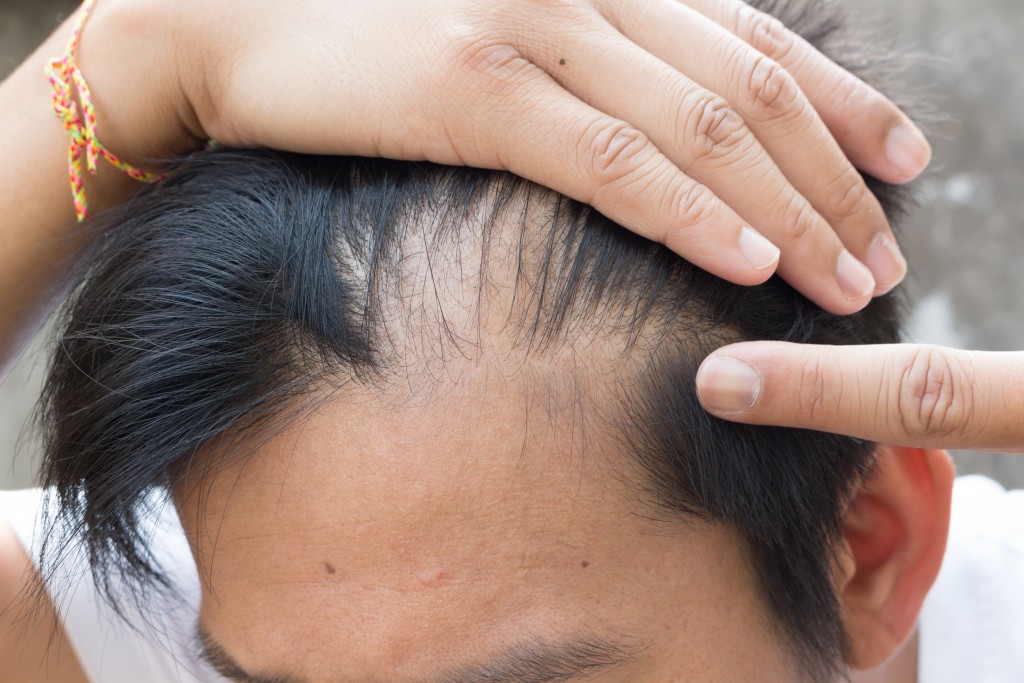Disclaimer: This website provides health information for educational purposes only and is not a substitute for professional medical advice, diagnosis, or treatment. Always seek the guidance of a qualified healthcare provider with any questions you may have.
According to the American Academy of Dermatology, an individual sheds between 50 and 100 hairs a day. When the body loses significantly more hairs each day, a person is said to have excessive hair shedding. Individuals who are no longer able to grow any hair are suffering from a condition called alopecia, otherwise known as hair loss.
The most common kind of hair loss is the type that you inherit, known as androgenetic alopecia. When you are genetically predisposed to hair loss, you lose your mane gradually.
However, some hair loss conditions are lifestyle-triggered. Here are a few lifestyle factors that contribute to hair loss:
Harsh Chemicals in Shampoo
Many shampoos in the market contain ingredients that irritate the scalp and cause hair loss. Formaldehyde, a preservative used in some shampoos and conditioners, may damage the DNA. Excessive exposure to this ingredient may cause you to lose some of your hair.
The next time you buy shampoo, choose the ones with ingredients that are beneficial for your hair and scalp. A smoothening shampoo with argan oil, for instance, helps stop hair loss, promotes new hair growth, and improves scalp and hair health.
Smoking
These cancer sticks are bad news. If the damage they do to your lungs won’t convince you from kicking the habit, think about what they can do to your head. Smoking narrows the blood vessels throughout the body, and your skin is no exception. The hair follicles on your head require a fresh supply of blood to remain healthy. Restricting blood flow to your hair follicles makes regrowing your hair difficult. It means your body can’t replace falling hair strands.
If you want to avoid eventual hair loss, take steps to quit smoking.
Obesity
What’s terrible for your waistline also causes problems up top. Obesity wreaks havoc on your hormones. When you’re overweight, your condition severely strains the production of insulin and thyroxine. Imbalances in these two hormones produce chain reactions that could affect the health of your hair. Some imbalances might cause hair thinning due to the frequent replacing of the hair strand. Others could cause hair to fall out completely.
An adult is obese when their Body Mass Index (BMI) is 30 and above. Individuals with a high BMI should seriously consider changing their lifestyle to save their hair — and their lives.
Diet
Hair is a large collection of fast-dividing cells. All of them are sensitive to imbalances in nutrition. A deficiency in zinc, for instance, can result in brittle, dry hair that breaks easily.
Individuals need to eat well to take care of their hair. They should eat foods rich in iron and protein, which are essential in achieving healthy hair. Other minerals, such as calcium and magnesium, also contribute to healthy hair.
Stress

People experience intermittent stress in their life. Too much of it, however, can become a problem. Extreme stress could force hair follicles into a resting period. The hair starts to shed, resulting in the appearance of thinning. While stress is unavoidable, you can take steps to manage and reduce it.
Smoking, diet, shampoos with harsh chemicals, and excessive stress are all factors that could cause hair loss. Unlike androgenetic alopecia, which is beyond your control, you have power over these factors. Choosing a great shampoo, quitting smoking, changing your diet, and managing stress are effective ways to help prevent your hair from falling prematurely.




